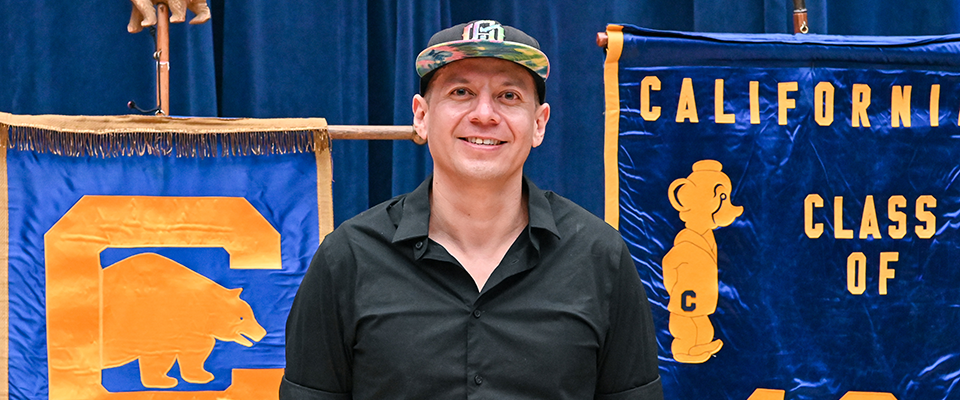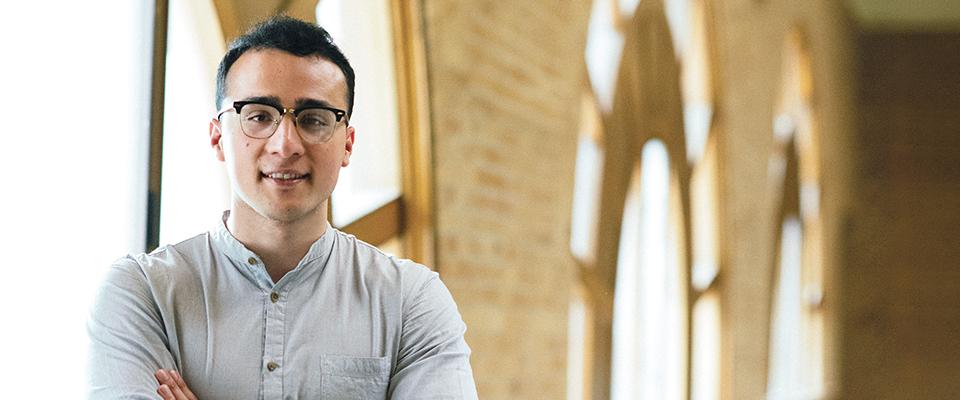Growing up in Los Angeles, Xavier Serrato ’04 knew that going to college might be a long shot. He was raised by his mom, who emigrated from Mexico and cleaned houses to support Xavier and his two sisters. Beginning at age 14, Xavier worked to help put food on the table for his family.
Xavier was an excellent student, but the cost of a college education was daunting. “College seemed impossible,” says Serrato, who is now the founder of two tech companies. “The question was always on my mind—how am I going to pay for college?”
Xavier had always dreamed about attending UC Berkeley. He admired Mario Savio and others in the Free Speech Movement and was aware that two of his heroes, John F. Kennedy and Martin Luther King, Jr., had delivered speeches on campus.
Trouble was, his mother, Consuelo, didn’t want him to go to Cal. She thought he should go to a community college like his sisters and live at home.
“She didn’t even know where Cal was,” he says. “When I told her I got into Berkeley, she said ‘Why are you moving to New York?’—she was thinking Brooklyn. It took time to convince her that it was a good thing for me to go. But as the only man in the house, she wanted me to stay.”
Xavier was accepted to Cal, and with Pell Grant funding and a few other scholarships, decided he would show up and then figure out how to fund the rest. Enter the Cal Alumni Association’s Achievement Award Program (TAAP).
“I initially thought it would be a standard $1,000 alumni scholarship, and it wasn’t until I got there, I found out it was much more,” he says. “That allowed me to focus on my studies and life goals.”
Xavier was one of the original 15 TAAP scholars. To this day they call themselves the “Founding 15.” They quickly bonded and established a mutual support system.
“First and foremost, TAAP gave me a community,” he says. “I was with other first-gen college students who were going through similar things. It can seem like everyone else is on the right path, except you.” He says that TAAP helped him navigate the university and kept him on track academically. For example, he says, he didn’t even know there was a student learning center for tutoring assistance until TAAP staff mentioned it.
TAAP also helped him bridge the social divide. “Many of my peers at Cal never even had jobs in high school!” he says. “It was hard for me to relate to that. And they also had parents who went to Cal or at least to college, and they were able to advise them. I didn’t have that. So TAAP became my adopted family.”
“First and foremost, TAAP gave me a community.”
Xavier excelled at Cal, graduating in 2004 with a degree in political science and education. He earned his master’s degree at New York University in education. He then worked on Barack Obama’s 2008 presidential campaign before turning his full focus to his dream: launching his own company with the mission of increasing diversity in technology.
He and a partner founded Vision Academy in 2011, a company that works with recent immigrant families by providing academic support to their children in San Francisco’s Bayview neighborhood.
That same year, Xavier founded XKids Tech Camp, a company that gives kids in low-income neighborhoods access to learning the basics of computer science, coding, programming, and beyond, so they can be prepared for careers in the tech industry. XKids began in two schools; today it is in nearly 20 Bay Area schools, serving more than 600 students.
And that isn’t all. This entrepreneur at heart recently founded another company focused on teaching coding through educational games for kids. Xavier says the reason his companies focus on diversity in tech is in part because of TAAP’s influence. “From TAAP, I felt a need to give back. I’d been given so much and the program put a lot of faith in me.”
He is so serious about paying it forward that he says one of his goals with his new company is to hire TAAP alumni when it reaches profitability.
TAAP is still an important part of Xavier’s life. Every year there is a reunion around Thanksgiving, and he relishes re-connecting with the “Founding 15.”

“I just can’t thank the TAAP program enough,” he says. “If I didn’t have that support system, who knows? I may have dropped out and gone to a Cal State or community college near my home.”
As for his mother?
“Now she knows where Berkeley is!” he says laughing. “She brags to her friends about how her Latino son graduated from one of the best schools in the country. It feels good to make her so proud.”




















